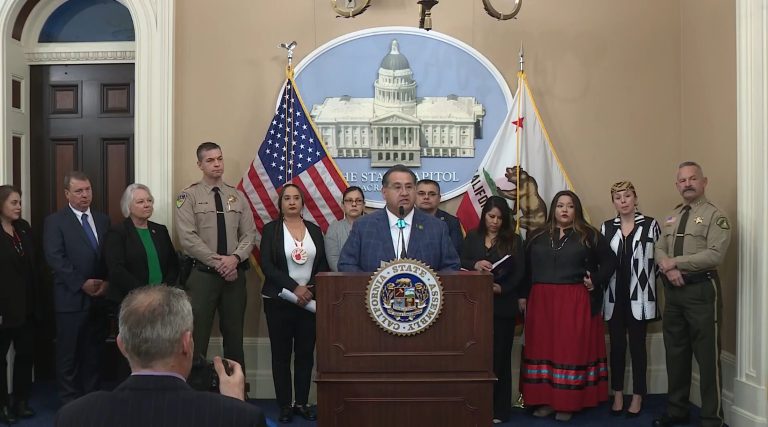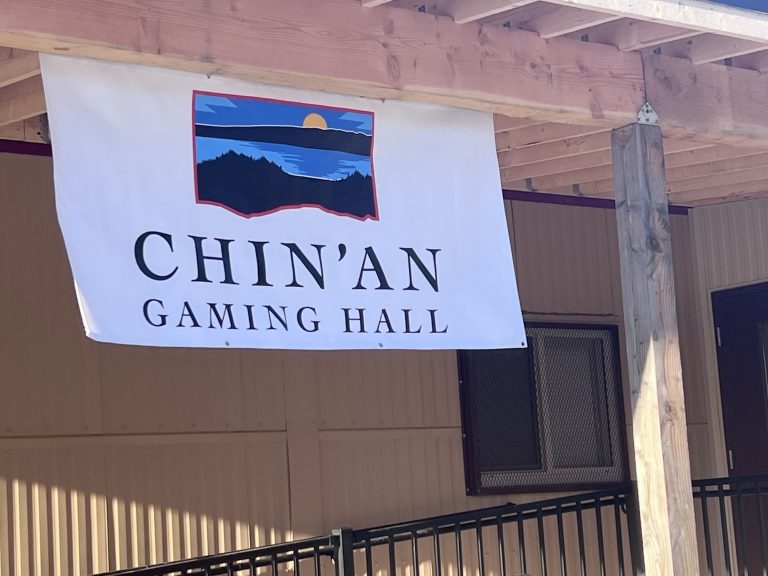Podcast: Play in new window | Download | Embed

Anchor: Art Hughes
A first nation in western Canada says it is looking into the deaths of more than 200 children who never came home from a residential school. As Dan Karpenchuk reports, one researcher calls the former school, the most horrific in Canada.
Eric Large is the lead investigator. He began his investigation earlier this year into the former Blue Quills Residential School near St. Paul, Alberta. Large began looking at burial records in February and says there are about 215 children, between the ages of six and eleven, who died, but whose remains were never accounted for.
“It can be safely stated that in our community of 12,000 people each family has had four to five children who went missing from this institution.”
Large says the number of missing children is extensive. He says the former school was rife with violence, illness, starvation, abuse and death.
A councillor for the Saddle Lake Cree Nation says a partial skeleton of a child was discovered when he was helping to dig new graves in the local cemetery, but there was no marking to suggest there was a grave there.
He wants the federal government in Ottawa to help pay for ground penetrating radar so that a more thorough investigation of the school site can take place. He also wants a community wellness plan created to help people deal with the trauma.
The finding at the former residential school comes almost a year since a first nation in British Columbia confirmed, through ground penetrating radar, that 215 possible unmarked graves were found at the site of another Indian Residential School.
 Meanwhile, Indigenous leaders in Canada met with Prince Charles as he wraps up his tour of the country. They’re requesting a royal apology for the abuses from residential schools.
Meanwhile, Indigenous leaders in Canada met with Prince Charles as he wraps up his tour of the country. They’re requesting a royal apology for the abuses from residential schools.
The BBC reports Assembly of First Nations national chief RoseAnne Archibald appealed directly to the heir to the British throne at a reception in Ottawa.
Charles earlier briefly acknowledged the country’s past abuses of Indigenous people. He said it’s important to come to terms with the darker and more difficult aspects of the past.
A series of discoveries identified the remains of hundreds of people, presumably children, buried in unmarked graves on the grounds of former residential schools. Charles said he looks forward to the process of reconciliation in the country. A process he called “vital”.
 A trial is underway in Alberta where two white men are charged with the murder of two Metis hunters two years ago. Roger Bilodeau and his son Anthony Bilodeau shot and killed Jacob Sansom and his uncle, Maurice Cardinal after an encounter along a country road.
A trial is underway in Alberta where two white men are charged with the murder of two Metis hunters two years ago. Roger Bilodeau and his son Anthony Bilodeau shot and killed Jacob Sansom and his uncle, Maurice Cardinal after an encounter along a country road.
The Bilodeaus forced the confrontation because they suspected the two Indigenous men were thieves. The two men did not call authorities following the shooting.
Attorneys say the defendants opened fire in self defense.
 The U.S. federal government is preparing to return nearly 12,000 acres of land to the Leech Lake Band of Ojibwe. The land has been in dispute since 1948 when the Bureau of Indian Affairs followed through on an errant order to sell the land without consent from its owners.
The U.S. federal government is preparing to return nearly 12,000 acres of land to the Leech Lake Band of Ojibwe. The land has been in dispute since 1948 when the Bureau of Indian Affairs followed through on an errant order to sell the land without consent from its owners.
More than 19,000 acres of land was sold off over the next decade. The band has been working ever since to have it returned.
Minnesota Public Radio reports the county’s stance to work collaboratively with the tribe helped bring about a positive outcome.

Photo: Xnatedawgx
The Metropolitan State University of Denver will provide Native students waivers for tuition and fees. The college averages anywhere from 70 to 100 Native students a year. The free tuition program is expected to cost about $200,000 its first year. The move follows action by the state legislature last fall to offer in-state tuition to any student that belongs to a federally recognized tribe with historical ties to Colorado.
MSU’s action is part of a small trend. In April the University of California system announced tuition wavers for any state resident belonging to a federally recognized tribe. The policy applies to all the schools in the UC system for undergraduate and graduate students.
And Oregon is launching a program to cover tuition, housing and books for members of the state’s nine federally recognized tribes seeking to go to one of the state’s public institutions.
Get National Native News delivered to your inbox daily. Sign up for our newsletter today.



